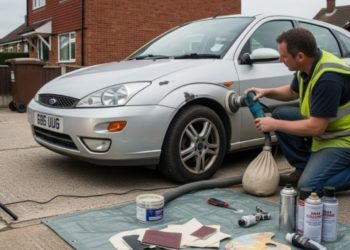QA, or quality assurance, is a fundamental part of any industry. Ensuring that your production line is producing the same high-quality products every single time is nothing but beneficial.
In the automotive industry, QA has never been more important as it ensures that safety standards as well as regulatory guidelines are met which improves customer satisfaction and brand reputation. Let’s look at some of this impact in greater detail.
Ensuring product integrity and safety
Vehicles of all shapes and sizes need to be safe to be on UK roads. Unsafe vehicles can have catastrophic consequences if they break down or malfunction and cause an accident.
Accidents caused by mechanical failures can have untold ramifications. Not only are the occupants of the car put at risk, but so are other drivers as well as pedestrians.
QA testing is vital in identifying and rectifying any defects during the manufacturing process. Having the correct test equipment allows even the smallest fault to be detected, allowing the vehicles to meet the stringent safety standards we have in the UK. This prevents any unsafe vehicles from being put onto the road.
Navigating regulatory compliance
The automotive industry is subject to various regulations to ensure safety on the roads. One of the main pieces of legislation that UK manufacturers must adhere to in order to sell their cars in the UK is The Motor Vehicles (Approval) Regulations 2001. This law sets out certain measures which must be met for a car to be deemed safe.
A speedometer, for example, is crucial for all drivers. Using QA to make sure that the internal components are working correctly ensures that drivers can adhere to the speed limits, keeping other road users safe. It also helps them to prevent falling foul of the police too!
Enhancing customer satisfaction and brand reputation
Being able to produce high-quality, reliable vehicles is key to maintaining a strong brand and customer satisfaction.
Gaining a reputation for being safe and secure only comes through rigorous QA testing and action upon your findings. Preventing recalls and negative publicity only adds to having a positive reputation which customers will gravitate towards.
Cost efficiency through proactive quality measures
There is no escaping that having to recall vehicles or halt production to fix a fault is costly. Regular QA testing can, however, identify these issues as early as possible, minimising disruption.
Stopping production is financially less than ideal. No cars leaving the plant means they cannot be sold which eats into a company’s profits. Plus, staff will have to work overtime to fix the issues and experts will need to be consulted, meaning expenditure will increase as well.
Not only does this prevent vehicles from leaving the manufacturing plant, but it also has an impact on the environment. Waste is created when the vehicles are not up to scratch, meaning there is an increase in gas emissions, physical waste and chemical waste.
David Prior
David Prior is the editor of Today News, responsible for the overall editorial strategy. He is an NCTJ-qualified journalist with over 20 years’ experience, and is also editor of the award-winning hyperlocal news title Altrincham Today. His LinkedIn profile is here.












































































